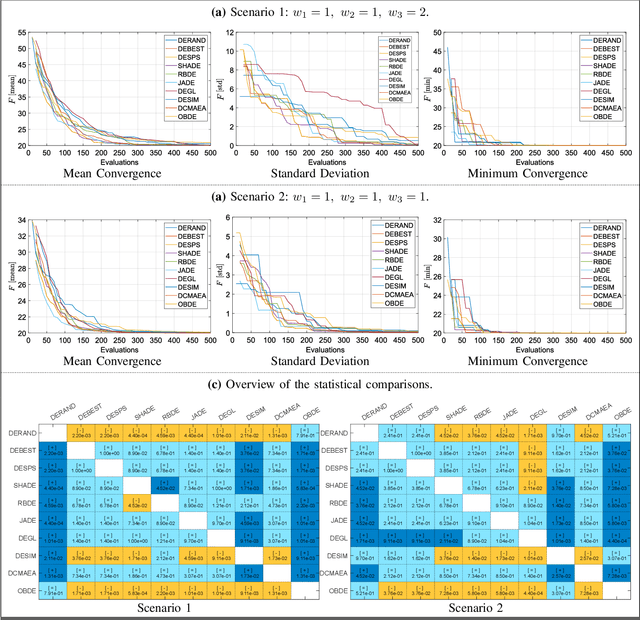Tomoyuki Miyashita
A Study on the Inductance and Thermal Regression and Optimization for Automatic Layout Design of Power Modules
Dec 13, 2023



Abstract:Power modules with excellent inductance and temperature metrics are significant to meet the rising sophistication of energy demand in new technologies. In this paper, we use a surrogate-based approach to render optimal layouts of power modules with feasible and attractive inductance-temperature ratios at low computational budget. In particular, we use the class of feedforward networks to estimate the surrogate relationships between power module layout-design variables and inductance-temperature factors rendered from simulations; and Differential Evolution algorithms to optimize and locate feasible layout configurations of power module substrates minimizing inductance and temperature ratios. Our findings suggest the desirable classes of feedforward networks and gradient-free optimization algorithms being able to estimate and optimize power module layouts efficiently and effectively.
On Searching for Minimal Integer Representation of Undirected Graphs
Dec 13, 2023Abstract:Minimal and efficient graph representations are key to store, communicate, and sample the search space of graphs and networks while meeting user-defined criteria. In this paper, we investigate the feasibility of gradient-free optimization heuristics based on Differential Evolution to search for minimal integer representations of undirected graphs. The class of Differential Evolution algorithms are population-based gradient-free optimization heuristics having found a relevant attention in the nonconvex and nonlinear optimization communities. Our computational experiments using eight classes of Differential Evolution schemes and graph instances with varying degrees of sparsity have shown the merit of attaining minimal numbers for graph encoding/representation rendered by exploration-oriented strategies within few function evaluations. Our results have the potential to elucidate new number-based encoding and sample-based algorithms for graph representation, network design and optimization.
 Add to Chrome
Add to Chrome Add to Firefox
Add to Firefox Add to Edge
Add to Edge